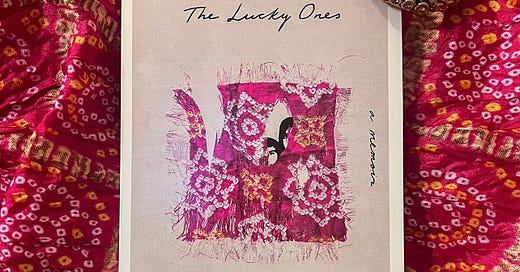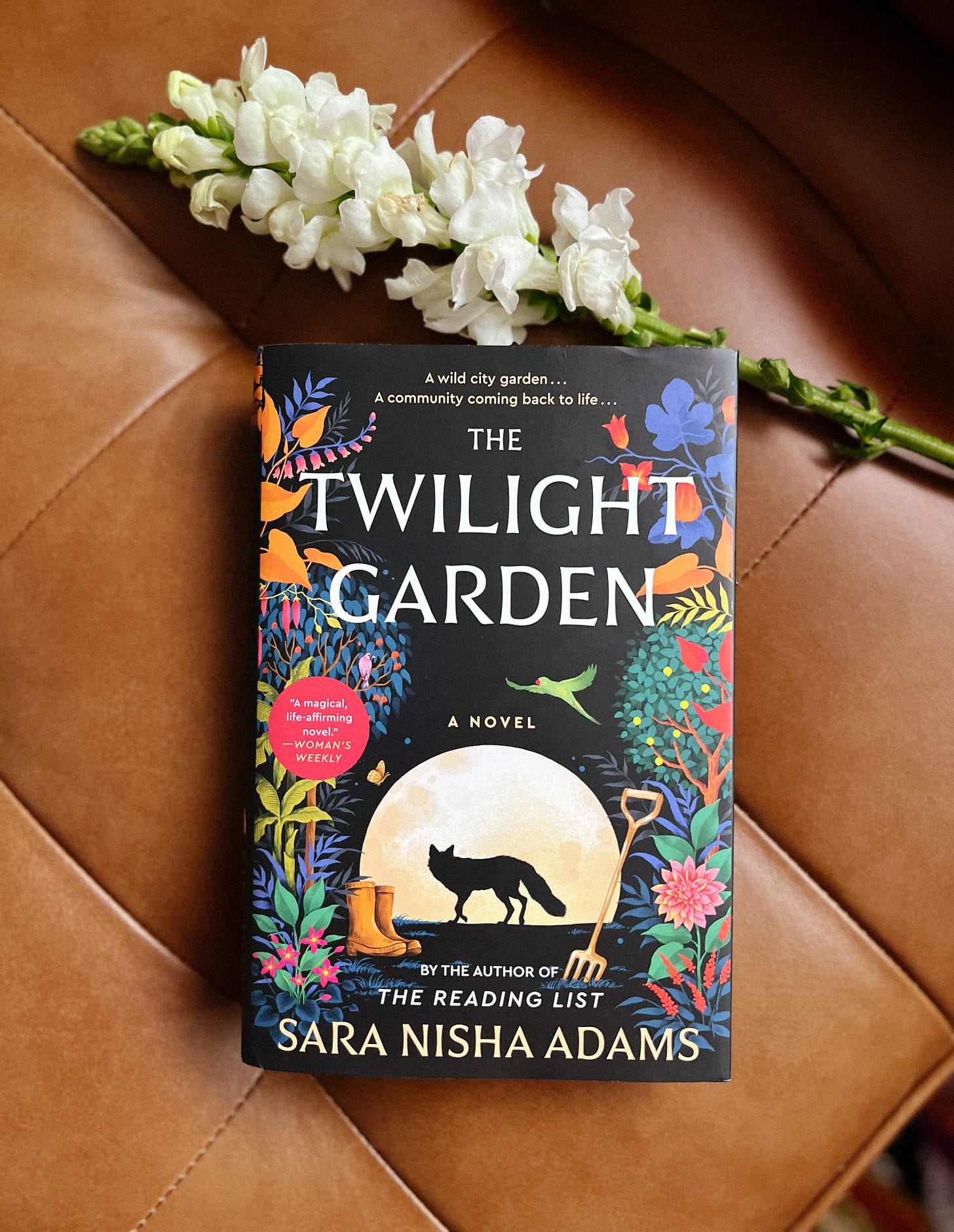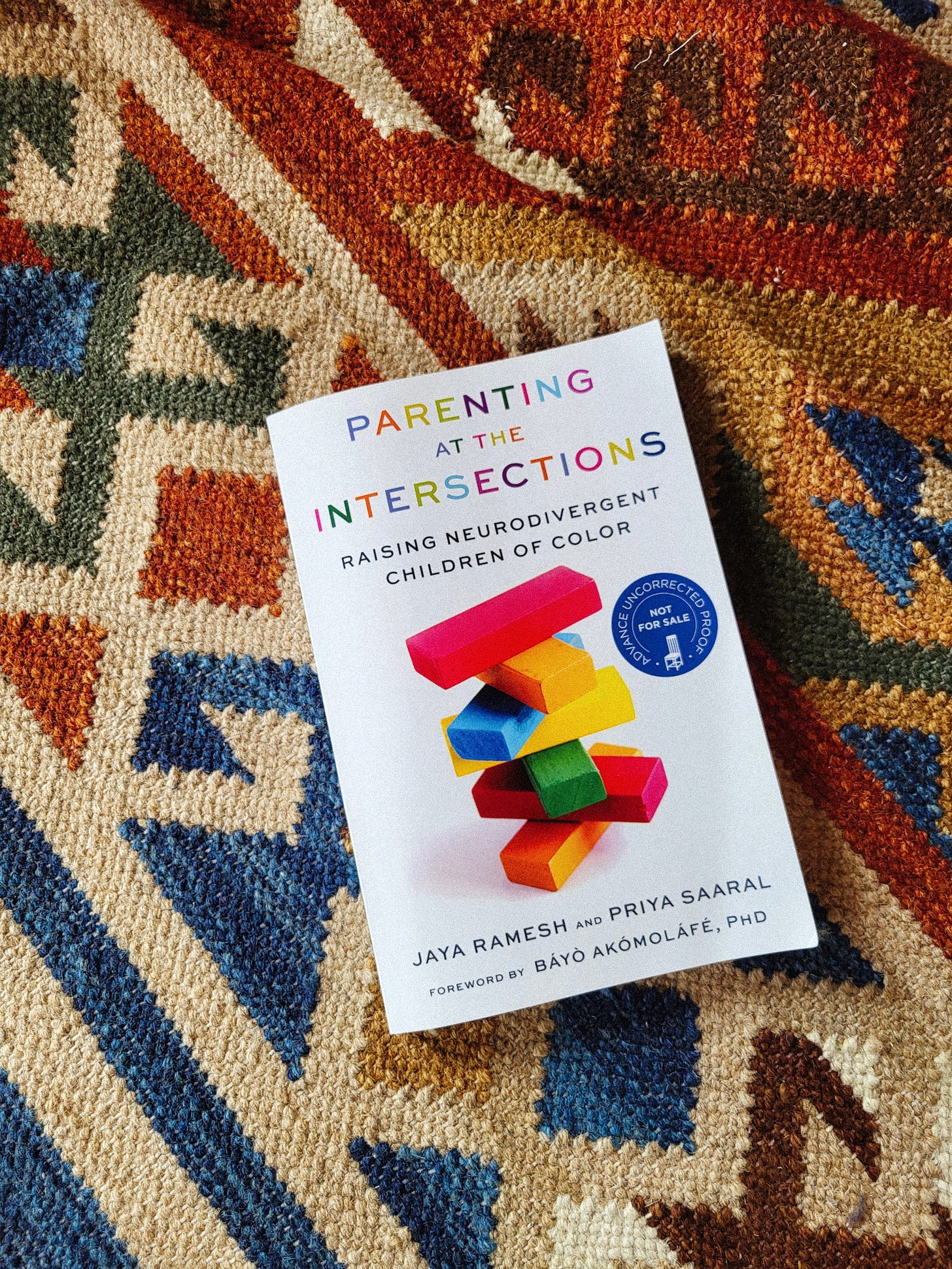Dear readers,
As we navigate a politically fractious year, we are once again glued to our news feeds, absorbing a constant barrage of information and opinions. We find ourselves doing a lot of listening—whether through podcasts, news anchors, or conversations with loved ones. This week, amidst the ongoing noise, we turn to voices who help us manage pain and harness power. If you are looking to explore new forms of listening and perspectives, consider these titles:
For those mobilizing their platforms to address the humanitarian crisis in Gaza, Ukraine, Syria, Haiti, and Sudan: “The Lucky Ones” by Zara Chowdhary offers a powerful perspective. Chowdhary’s memoir exposes the devastating effects of ethnic violence and political exploitation of Muslim communities in India in 2002, drawing parallels to current communities facing similar upheaval and persecution. Understanding this personal and historical context provides insight into broader patterns of conflict and underscores the need for empathy and justice in addressing ongoing crises.
For parents looking to engage in honest dialogue with their children: “Good Talk” by Mira Jacob is invaluable. Jacob recounts a poignant moment when her son asks if his skin color makes him "bad," prompting her to navigate the complexities of race and identity with care and clarity. This book lends practical insights and real-life examples to help parents address tough questions and foster open, empathetic conversations in a politically charged climate.
For those deeply engaged in grassroots efforts for social justice and equity: “See No Stranger” by Valarie Kaur is a trusted guide. Kaur helps readers grieve injustices while urging us to channel that grief into meaningful action. Her insights are essential for anyone committed to transforming pain into power to mobilize change effectively.
Take in their wisdom. Process their insights. Engage with purpose. That’s what we hope to do.
Until next time,
Mishika and Sri
The Twilight Garden by Sara Nisha Adams
Reviewed by: Maleeha Hamidi
In another lovely, lighthearted story from the author of the beloved “The Reading List,” “The Twilight Garden” introduces two contentious neighbors, Winston and Bernice, who share a garden. Their constant bickering stems from mutual disdain: Winston finds Bernice rude and pretentious, while Bernice views Winston as irresponsible and inconsiderate. However, both are secretly grappling with personal struggles. Their lives take an intriguing turn when they begin receiving mysterious letters and photographs about the garden's history. Inspired, Winston opens the garden to the community, reminiscent of its past. Bernice faces a choice: collaborate with Winston to foster a thriving neighborhood, benefiting her son and the community, or continue in their hostile coexistence.
Written in multiple timelines and perspectives, “The Twilight Garden” highlights the importance of community especially in navigating parenthood, family, relationships, heartbreak, divorce, and loss. I felt the book could have been shorter due to some extraneous details that slowed the plot, and it did not surpassing my love for her debut. However, Adams excels at character development, and “The Twilight Gardens,” is a delightful, feel-good read which keeps readers connected to the story throughout.
📚 Get your copy of “The Twilight Garden.”
The Lucky Ones by Zara Chowdhary
Reviewed by: Nandini Erodula
In her powerful memoir, “The Lucky Ones,” Zara Chowdhary takes readers on a harrowing journey through the violent anti-Muslim pogrom in Ahmedabad, Gujarat in 2002. She offers a narrative of resilience through the women of her multigenerational Muslim family, especially the remarkable strength of her Amma.
“The Lucky Ones” is not just a personal memoir but a profound commentary on the broader socio-political landscape of India. Chowdhary sheds light on how India’s now prime minister, Narendra Modi’s tenure as Chief Minister of Gujarat is marred by complacency and support for the right-wing Hindu mobs responsible for the massacre of Gujarati Muslims.
Through extensive cultural and religious research, Chowdhary’s writing vividly portrays the horrific brutality inflicted upon Muslim men, women, and children during the three-month lockdown. Before the 2002 anti-Muslim riots, Chowdhary describes a harmonious existence where she could “pick up a Bible just as easy as... [she does] the Quran or Bhagavad Gita. They all feel [hers].” This sense of unity starkly contrasts with the subsequent extreme cruelty she experiences.
Chowdhary’s account is imbued with a deep sense of empathy and understanding, making “The Lucky Ones” a crucial read for anyone interested in the intersection of religion, politics, and human rights in contemporary India. Chowdhary not only honors the memories of the victims but also challenges readers to confront uncomfortable truths about prejudice, violence, and complicity.
📚 Get your copy of “The Lucky Ones.”
Parenting at the Intersections by Jaya Ramesh and Priya Saaral
Reviewed by: Aditi Sapra
Despite the specificity of this title, Jaya Ramesh and Priya Saaral’s compassionate guide is for readers seeking to understand the impact of childhood challenges and traumas, including neurodivergence. Importantly, this book acknowledges the unique struggles of parents and children of color in a society dominated by ableism, white supremacy, patriarchy, and other oppressive systems.
Through deeply researched case studies and poignant reflections, the authors illustrate how societal norms and educational structures reinforce harmful definitions of "normal.” Ramesh and Saaral offer insights into the policies and practices that disadvantage neurodivergent children and their families. Particularly for those thrust into a recent diagnosis, this book is a guiding light of understanding and support to those who may feel overwhelmed by the challenges ahead.
Ramesh and Saaral write with unique thoughtfulness, including "body checks" and reflection questions, making readers feel like they're conversing with a trusted friend or therapist. They provide solace and understanding in a world that often alienates parents of neurodivergent children and neurodivergent individuals. This book feels like coming home, offering validation, support, and guidance for raising neurodivergent children of color or re-parenting oneself.
While “Parenting at the Intersections” fills a gaping hole in the parenting and educator literature, this book is for anyone who seeks to facilitate a more accessible, inclusive, and humane society.
📚 Get your copy of “Parenting at the Intersections.”







